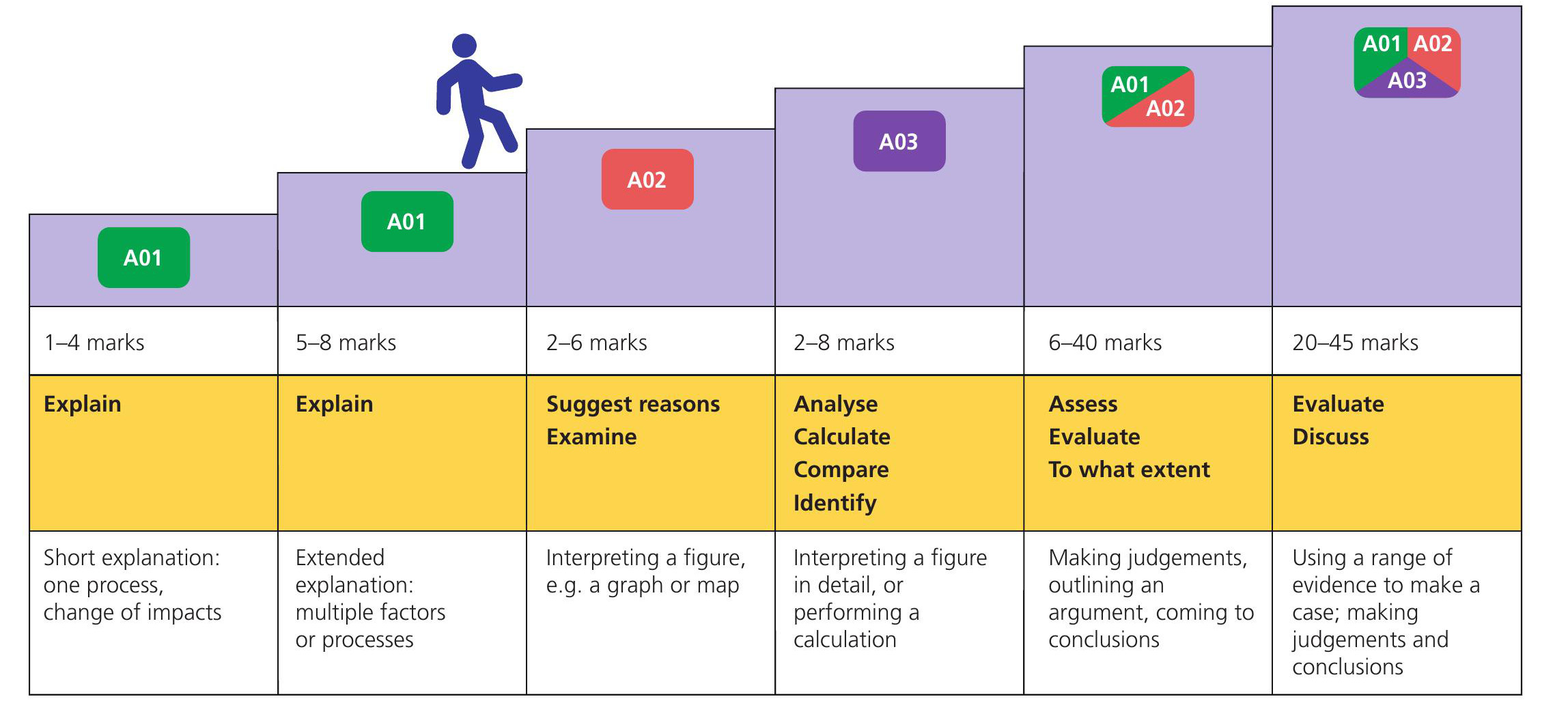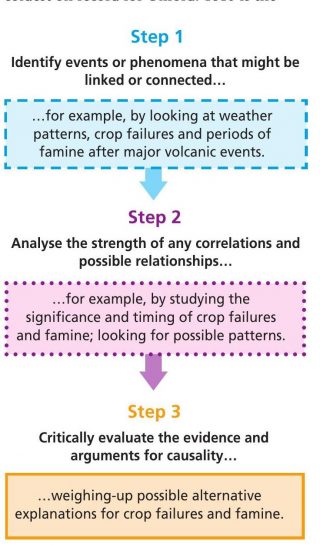
This Question and Answer provides an overview of A-level geography exams. For details of your specific exam board mark tariffs, Assessment Objective weightings and mark schemes, you should always look carefully at your A-level specification, past papers and sample assessment materials (AQA, Eduqas, Edexcel or OCR).
A-levels were introduced in 1951 and have not changed very much since then. They consist of exams that are set and marked by examiners outside of your school. Where A-levels contain coursework, this will most likely be marked by your teachers but be moderated by examiners outside of your school who check that the marking across different schools is consistent. External exams have some advantages:
Your organisation does not have access to this article.
Sign up today to give your students the edge they need to achieve their best grades with subject expertise
Subscribe




